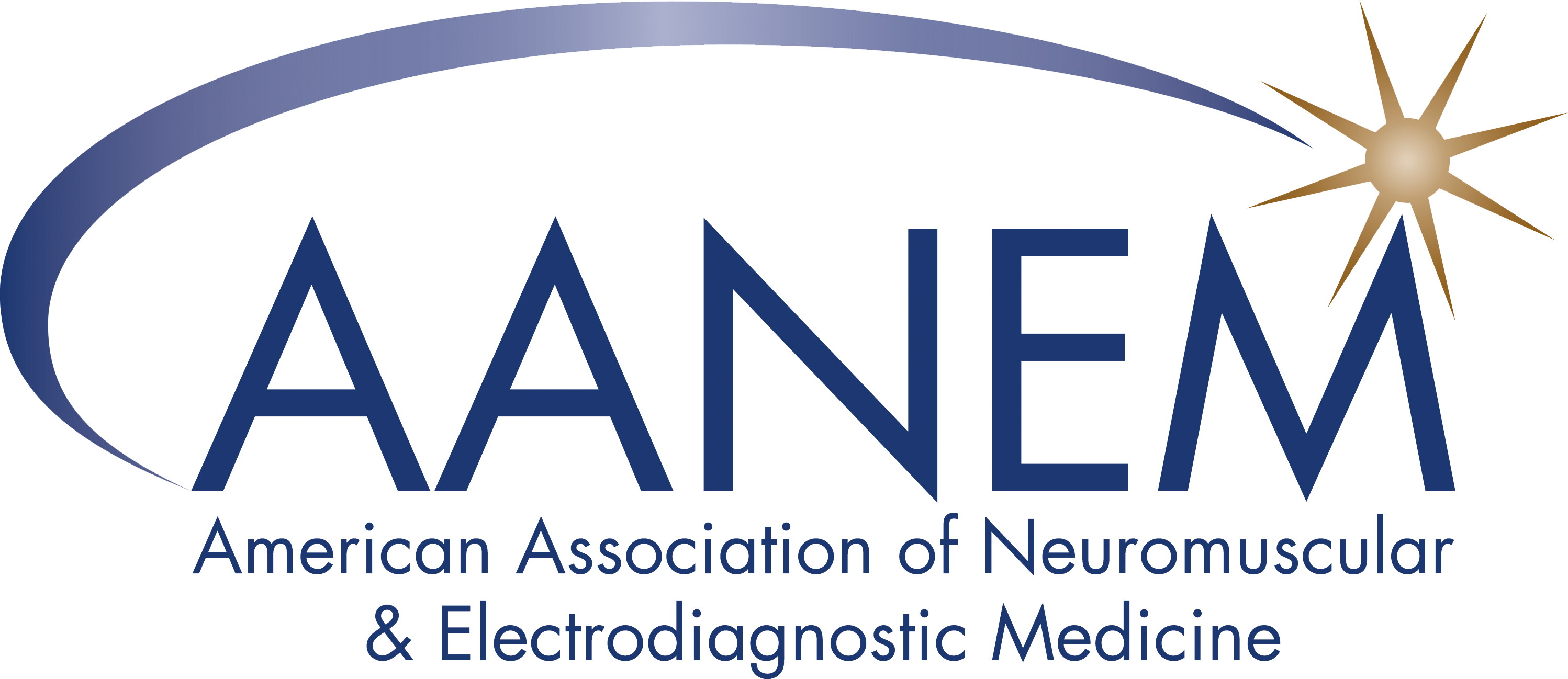Patient Safety: NM Complications of Immune Checkpoint Inhibitors
Published October 05, 2021
Practice
From the AANEM Quality and Patient Safety Committee
Vignette
A 59-year-old woman with adenocarcinoma of the lung is treated with pembrolizumab and develops progressive weakness after a 3rd treatment with pembrolizumab. On examination 2 weeks after the onset of weakness she has predominantly proximal weakness of lower extremities (hip flexors 4/5, knee extensors 4/5) and uses a single cane for safe ambulation. She is areflexic and has bilateral facial nerve palsy. EDX testing shows demyelinating sensorimotor polyneuropathy with temporal dispersion and delayed late responses on NCS. Cerebrospinal fluid examination shows elevated protein at 239 with 7 white blood cells, 12 red blood cells, and glucose of 65. She was diagnosed with AIDP.
Multiple Choice Question
What neuromuscular complications have been associated with Immune checkpoint inhibitors?
1. non-length-dependent radiculoneuropathy
2. myositis
3. myasthenia gravis
4. CIDP
5. all of the above
Correct answer: 5
Multiple Choice Question
How would you treat this patient?
1. IVIG 2g/kg over 3-5 days
2. Rituximab i.v. 1 g every 3 months
3. IV methylprednisolone 1 g for 3 days
4. 1 and 3
Correct answer: 4
Explanation
Immune checkpoint inhibitors (ICPI’s) are monoclonal antibodies that are used to treat a variety of cancers by using the patient’s immune system to effectively reduce tumor burden and improve survival. ICPI treatment is associated with an array of immune related adverse events affecting many organ systems. Immune checkpoint inhibitors rarely cause neurologic complications, occurring in approximately 1-3% of patients treated. Neuromuscular complications have been seen and include myasthenia, CIDP, myositis and Guillain Barre syndrome. One of common neuromuscular complications with ICPI is myasthenia gravis presenting as myasthenia exacerbation or the onset of de novo myasthenia gravis. Both acetylcholine receptor antibody-positive and seronegative myasthenia gravis have been reported, but so far there were no reports of MuSK-seropositive myasthenia gravis. Overlap syndromes of myasthenia gravis and myositis are common and some patients may develop orbital myositis mimicking symptoms of ocular myasthenia. Non-length-dependent radiculoneuropathy, which may be similar to Guillain-Barre syndrome is another common neuromuscular adverse event following ICPI therapy. Management of the neuromuscular complications of ICPI is complex and requires an interdisciplinary approach. Stopping the causative agent is usually the first step, although this depends on the severity of the adverse effects. Beyond that, the management of the specific neuromuscular adverse events is similar to the management when not associated with ICPI (e.g. corticosteroids, IVIG, plasmapheresis), and corticosteroids should be considered even in cases of GBS (where corticosteroids are not traditionally utilized) because of their potent impact on reducing the immune-mediated adverse effects of ICPI medications.
Supporting Articles
Dubey D, David WS, Amato AA, Reynolds KL, Clement NF, Chute DF, Cohen JV, Lawrence DP, Mooradian MJ, Sullivan RJ, Guidon AC. Varied phenotypes and management of immune checkpoint inhibitor-associated neuropathies. Neurology. 2019 Sep 10;93(11):e1093-e1103. doi: 10.1212/WNL.0000000000008091. Epub 2019 Aug 12. PMID: 31405908.
Johansen A, Christensen SJ, Scheie D, Højgaard JLS, Kondziella D. Neuromuscular adverse events associated with anti-PD-1 monoclonal antibodies: Systematic review. Neurology. 2019 Apr 2;92(14):663-674. doi: 10.1212/WNL.0000000000007235. Epub 2019 Mar 8. PMID: 30850443.
Kolb NA, Trevino CR, Waheed W, Sobhani F, Landry KK, Thomas AA. Neuromuscular complications of immune checkpoint inhibitor therapy. Muscle Nerve.2018 Jan; 58:10-22. Doi:10.1002/mus.26070.
Psimaras D, Velasco R, Birzu C, Tamburin S, Lustberg M, Bruna J, Argyriou AA. Immune checkpoint inhibitors-induced neuromuscular toxicity: From pathogenesis to treatment. J Peripher Nerv Syst. 2019 Oct;24 Suppl 2:S74-S85. doi: 10.1111/jns.12339. PMID: 31393660.
Author(s)
Nida Gleveckas-Martens
Charles Kassardjian
Sasha Zivkovic
